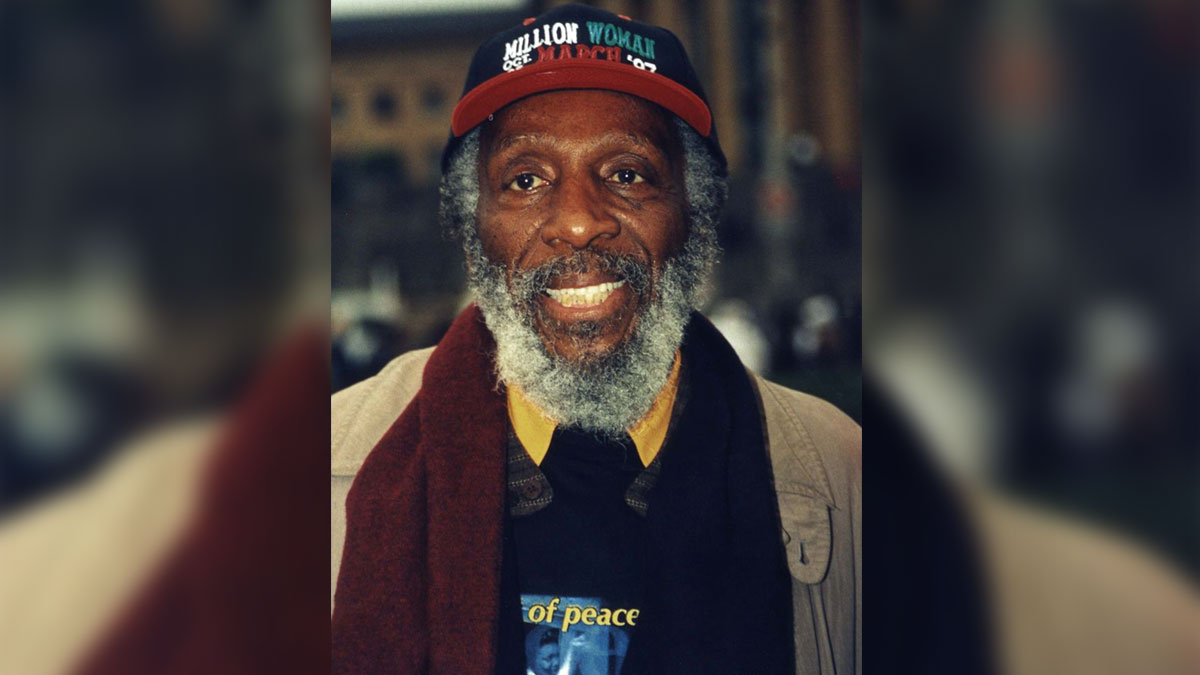
Oct. 12, 1932

Comedian and civil rights activist Dick Gregory was born in St. Louis.
He belonged to a new generation of Black comics that dared to take on race. In one of his routines, he talked about eating down South in a segregated restaurant:
“Then these three white boys came up to me and said, ‘Boy, we’re giving you fair warning. Anything you do to that chicken, we’re gonna do to you.’ So I put down my knife and fork, I picked up that chicken and I kissed it. Then I said, ‘Line up, boys!’”
He was the first Black comic permitted to stay and talk with “Tonight Show” host Jack Paar. When he heard that surplus food had been cut off to the impoverished in the Mississippi Delta in 1963, he chartered a plane and sent 14,000 pounds of food. He marched in Greenwood with those demanding the right to vote, only to be confronted by police with dogs. When an officer dragged the comedian away, Gregory said, “Thanks a million. Up North, people don’t escort me across the street.”
Gregory vowed the marches would continue: “We will march through your dogs, and if you get some elephants, we’ll march through them and bring on your tigers and we’ll march through them.”
He spent four days in jail with other protesters, including children: “Had you been there, as I was, walking through, listening, it was really something to be proud of, really something to be proud of. And if something ever happens and you have to do it again, don’t hesitate.”
Gregory also worked with Martin Luther King Jr. and others, using his comedy as a weapon against bigotry. At a mass meeting at a church in Clarksdale, Mississippi, a bomb came through the window, and people dashed to the door. “Where are you going?” Gregory asked. “The man who threw it is outside God’s house. The Man who’s supposed to save you lives here.”
In 2015, he received a star on the Hollywood Walk of Fame, and his life story became the subject of a one-man play produced by artist John Legend. The title of the play? “Turn Me Loose” — after Mississippi NAACP leader Medgar Evers’ last words when he was fatally shot in 1968.
Gregory died in 2017 at the age of 84.

